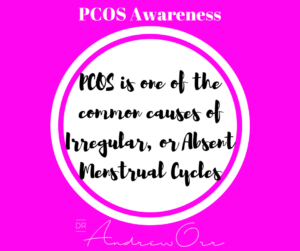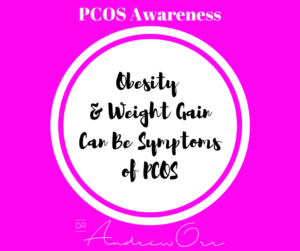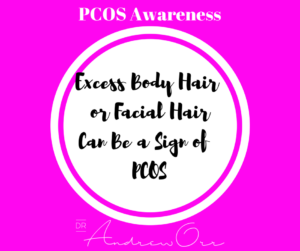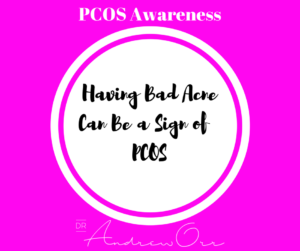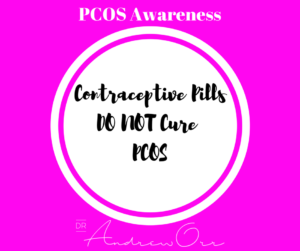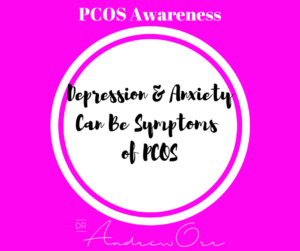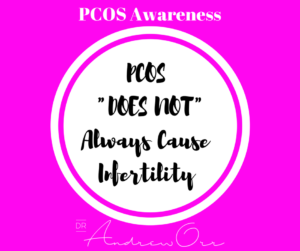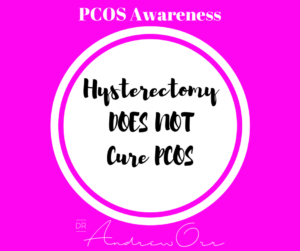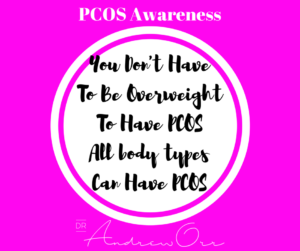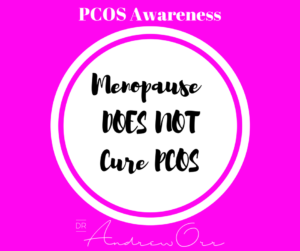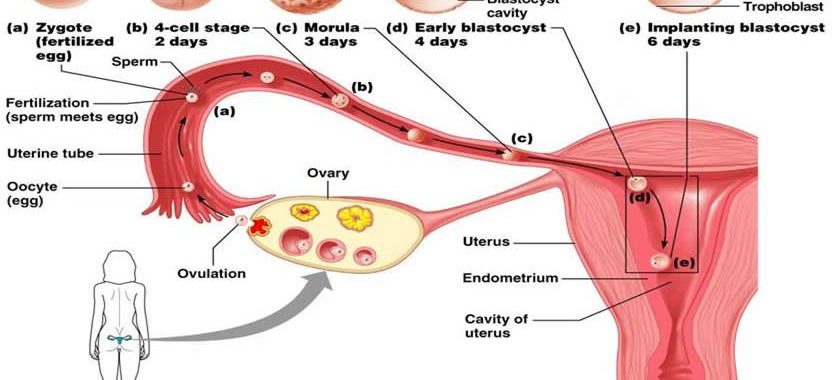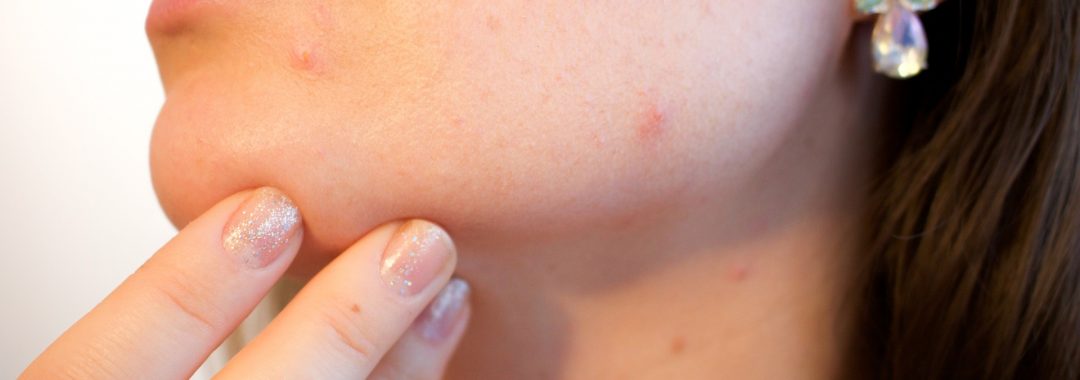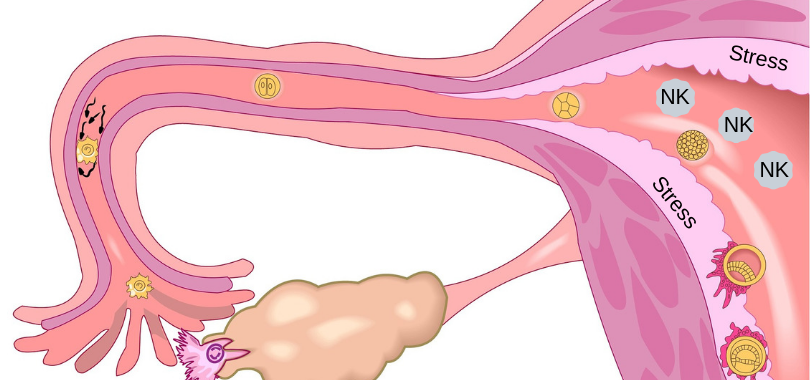The one thing I see daily in practice is that many women with PCOS are not being managed properly with regards to their symptoms and future health implications.
Many women, who actually do have PCOS, have been misdiagnosed, undiagnosed, dismissed, or are not being managed properly at all. This is quite concerning as PCOS can have long and short-term term health implications and can also have an effect on fertility.
Every day I see women, who have irregular cycles and symptoms of PCOS (Acne, Hirsutism, weight issues, emotional issues etc), being told that they do not have PCO, or PCOS.
Just today a colleague and myself had to call a radiology centre and get their head radiologist to go back and look over a scan of a woman who had been told she did not have Polycystic ovaries, and from the scan that we were viewing actually showed that she did have Polycystic Ovaries.
There was a big rush around and a major apology and an updated scan report sent with the notation saying the patient has multiple cysts on the ovaries consistent with PCOS. This is exactly why so many women with PCO and PCOS are misdiagnosed, or not even diagnosed at all.
Just so everyone knows, scans and blood tests are not always accurate in the diagnosis of PCOS and new guidelines, published recently, for the diagnosis of PCOS now highlight this. https://www.mja.com.au/journal/2018/209/7/new-evidence-based-guideline-assessment-and-management-polycystic-ovary-syndrome
The point I am trying to make is that many women are not aware they have PCO, or PCOS and the ones that do have the diagnosis, just are not being managed properly.
The main symptoms of PCOS
- Irregular or absent menses
- Acne
- Hirsutism (excess hair growth)
- Weight issues
- Emotional Issues (depression, anxiety etc)
Women with PCOS may only have 1-2 of the symptoms, or may have all of the symptoms combined. Up to 90% of women with acne will have PCOS, especially when combined with menstrual irregularities.
Many women with PCO and PCOS are completely unaware of the serious future, and sometimes present, health implications as a result of their disease state.
Women with PCO and PCOS are at very real danger of the following
- Type 2 diabetes
- Gestational diabetes
- Cardiovascular disease
- Infertility
- Recurrent Miscarriage
- Mood disorders (Depression and Anxiety)
- Weight issues (Obesity, Eating disorders etc)
All of the above are well known health risk factors for women with PCO and PCOS and this is not often explained to the patient.
Women with PCO and PCOS need to be educated that a multimodality approach is needed to treat and manage their disease state properly. The number one treatment for PCO and PCOS should always be diet and lifestyle modifications and interventions. The main focus should be on treating the main driver, being insulin resistance. Once this is achieved, many of the symptoms of PCO and PCOS will settle down as well. If remaining symptoms do not settle, then other treatments and health care management should be used.
The Pill
While the oral contraceptive pill can offer symptomatic relief of the symptoms of PCOS, it is not going to treat the underlying cause of the disease, nor is it going to be a cure. The other issue is that many women are having their underlying symptoms being masked by the contraceptive pill and completely unaware of the future health and fertility issues that can still be present. Women need to be made aware of this and often aren’t.
Metformin
While metformin is routinely used for women with PCO and PCOS, it does have a high side effect profile. Gastrointestinal and digestive upset are one of the major reasons many women stop taking it. It is also a category C drug and should not be used in pregnancy, as it is could affect the unborn baby. Metformin also has risk factors for depleting Vitamin B 12 and can lead to anaemia if used long term. Long-term use of metformin can also damage the liver and kidneys.
There are some very effective alternatives to Metformin, without the high side effect profile, and these can be discussed with your healthcare practitioner.
Modalities that may assist PCOS
As mentioned before, PCO and PCOS can be effectively managed and assisted using a multimodality approach, which could include the following:
- Medical treatments and interventions
- Hormonal Therapies
- Surgical Intervention (Ovarian Drilling)
- Diet and Nutritional advice and modification
- Exercise
- Complementary Therapies and Complementary Medicines
- Vitamins and nutritional supplements
- Acupuncture
- Psychology and counselling
- Lifestyle changes
- Mindfulness
- Relaxation and meditation
Women with PCO and PCOS may need a few of the modalities combined and some may need all of them combined together. It would all depend on the individual and how bad their presenting symptoms are. A healthcare practitioner who has a special interest in this area of women’s health medicine will be able to tell you which modalities and therapies will be best for your individual needs.
PCO and PCOS can have long-term and short-term health consequences and some of these can be very serious. We need for practitioners and patients to know this. Education is key for any disease state and the facts also need to be presented as part of this education as well.
New guidelines have just been published by an Australian led international collaboration, to help improve the care, health outcomes and quality of life of women with PCO and PCOS.
Key changes in the new guidelines include refinement of individual diagnostic criteria focusing on improving accuracy of diagnosis; reducing unnecessary testing; increased focus on education, lifestyle modification, emotional wellbeing and quality of life; and emphasising evidence-based medical therapy and appropriate fertility management.
A multimodality approach is something that I always talk about and has always been a part of my clinical approach to assisting women with PCO and PCOS. It is also something that I educate my fellow colleagues and practitioners on as well. Women who suffer from PCOS also need to be educated about this as well and why I will always continue to write these posts.
If you do have PCOS, or suspect that you may have PCOS, please make sure you get the help and care you should be getting and do not leave it too long to get that care and assistance as well. Make sure the person that you see also specialises in the management and treatment ofPCOS as well. If not, then find somebody who does.
If you need help and assistance with managing PCOS, you can always book in to see me, in person, or via online consult, as well. Talk to my friendly about how I may be able to assist you.
Regards
Andrew Orr
-No Stone Left Unturned
-The PCOS Experts
-The Women’s Health Experts


